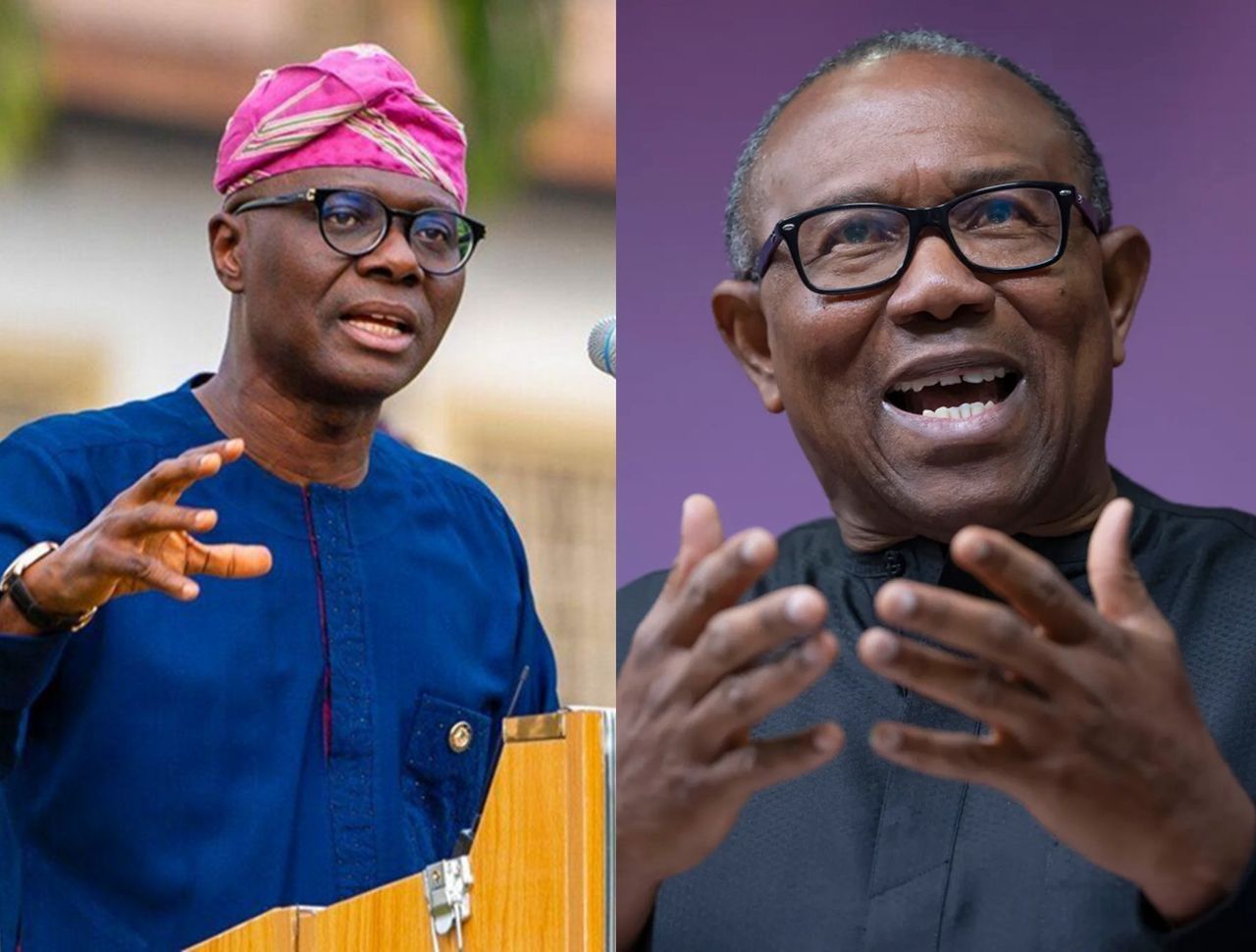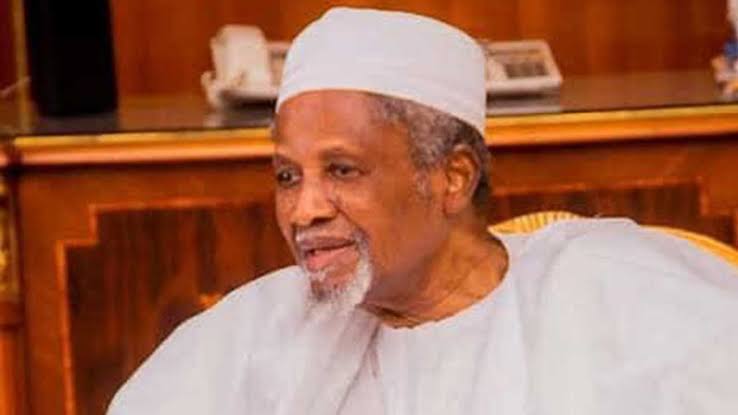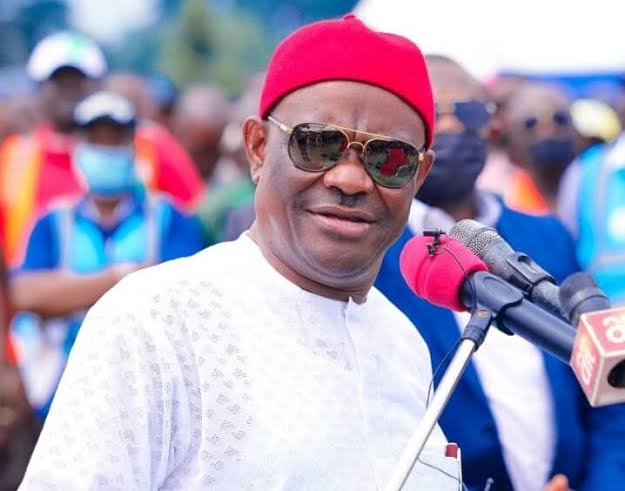
Sanwo-Olu Slams Peter Obi: "You Built No Schools, No Hospitals, Yet You Criticize Progress"

In a fiery rebuke that has ignited political conversations across Nigeria, Lagos State Governor Babajide Sanwo-Olu has openly criticized Labour Party leader and former Anambra State governor, Peter Obi, accusing him of hypocrisy over his recent comments about the current administration’s developmental strides. Speaking during a public engagement in Lagos, Sanwo-Olu did not mince words as he questioned Obi’s moral standing to judge the performance of a government that, according to him, is actively building schools and hospitals—projects Obi failed to deliver during his own time in office.
"I find it ironic that Peter Obi, who didn’t build a single school or hospital throughout his eight-year tenure as governor, is criticizing a government that's doing so," Sanwo-Olu remarked to thunderous applause from an audience filled with state officials, stakeholders, and members of the public. The governor’s statement immediately set social media platforms ablaze, with Nigerians from all walks of life weighing in on the escalating political drama between two influential figures with sharply contrasting visions for Nigeria's future.
Sanwo-Olu’s jab comes in response to Obi’s recent criticisms of the federal and state governments over what he described as "a lack of genuine developmental impact" despite significant public spending. Obi, known for his no-nonsense style of governance and frugal approach to public finance, had faulted the government for what he termed misplaced priorities and sluggish infrastructure growth. However, Sanwo-Olu’s pointed reference to Obi’s record as governor of Anambra State from 2006 to 2014 challenges the former governor’s credibility on matters of development and governance.
Observers note that while Peter Obi is often praised for his fiscal prudence—particularly for leaving billions of naira in Anambra’s coffers—his critics argue that his administration lacked visible, large-scale infrastructural legacies like schools, hospitals, and major public projects. Sanwo-Olu’s attack highlights this lingering criticism and invites renewed scrutiny into Obi’s legacy, forcing many to revisit the age-old debate about the balance between saving public funds and investing in critical infrastructure.
Peter Obi’s supporters, however, have quickly risen to his defense, pointing to the ex-governor's emphasis on education reform, health sector improvements through partnerships, and prudent management of public resources as lasting contributions to Anambra’s development. They argue that Obi's governance model was centered on sustainability rather than white-elephant projects, focusing on empowering institutions and ensuring financial stability for the future. They also highlight the fact that Obi received high ratings from international development organizations during his tenure, particularly for improving school enrollment rates and healthcare delivery in Anambra.
Despite these defenses, Sanwo-Olu's remarks have brought an uncomfortable spotlight on Obi at a time when the Labour Party leader is positioning himself as the principal voice of accountability in Nigeria’s political landscape. As one political analyst noted, "In politics, perception often matters as much as reality. Sanwo-Olu is reminding Nigerians that governance isn't just about saving money, it’s also about making tangible investments that people can see and feel."
Interestingly, Sanwo-Olu’s own record in Lagos provides the backdrop for his attack. Since assuming office in 2019, he has championed massive infrastructural projects, from the completion of several public hospitals and schools to the rollout of major transportation initiatives like the Lagos Blue Rail Line. His administration has been keen to project Lagos as a model of modern urban governance, and he has consistently emphasized that visible, impactful development projects are essential to improving citizens’ quality of life.
Critics of Sanwo-Olu, however, argue that Lagos’ massive budgets give the state an unfair advantage compared to smaller, less wealthy states like Anambra. They caution against direct comparisons between the two leaders, pointing out the vastly different economic realities each faced. Nonetheless, Sanwo-Olu’s comments tap into a broader national frustration over leadership accountability and the seemingly endless blame game among political figures.
The clash between Sanwo-Olu and Obi also reflects deeper tensions between Nigeria’s emerging political movements and the established order. While Peter Obi represents a growing wave of citizens clamoring for a break from traditional politics and seeking a new style of leadership focused on transparency and efficiency, Sanwo-Olu embodies the more traditional, establishment-backed governance style that prioritizes visible infrastructural achievements.
In the days following Sanwo-Olu’s statement, Peter Obi has maintained a studious silence on the matter, refusing to be drawn into a direct war of words. However, sources close to the Labour Party leader suggest that a formal response may be in the works. Meanwhile, political observers predict that this latest dust-up could have ramifications for the coming elections, as both figures command significant support bases and their credibility with the public is paramount.
For many Nigerians, this political spat underscores a broader question: What truly defines good governance? Is it the visible, physical legacy of construction and development, or the quieter, less glamorous achievements of fiscal discipline and systemic reform? As Sanwo-Olu and Obi continue to chart their respective political futures, Nigerians are left to grapple with these questions, hoping that, beyond the rhetoric and accusations, true progress will be made in addressing the country's pressing needs.
One thing is certain: in an era where citizens are more politically aware and active than ever before, political leaders must expect their records to be dissected and their words scrutinized. Whether Sanwo-Olu’s sharp critique will significantly dent Peter Obi’s carefully cultivated image as a reformist remains to be seen. But for now, the Lagos governor has succeeded in stirring the pot, bringing fresh heat to Nigeria’s already intense political landscape—and reminding everyone that in politics, the past is never truly past.


